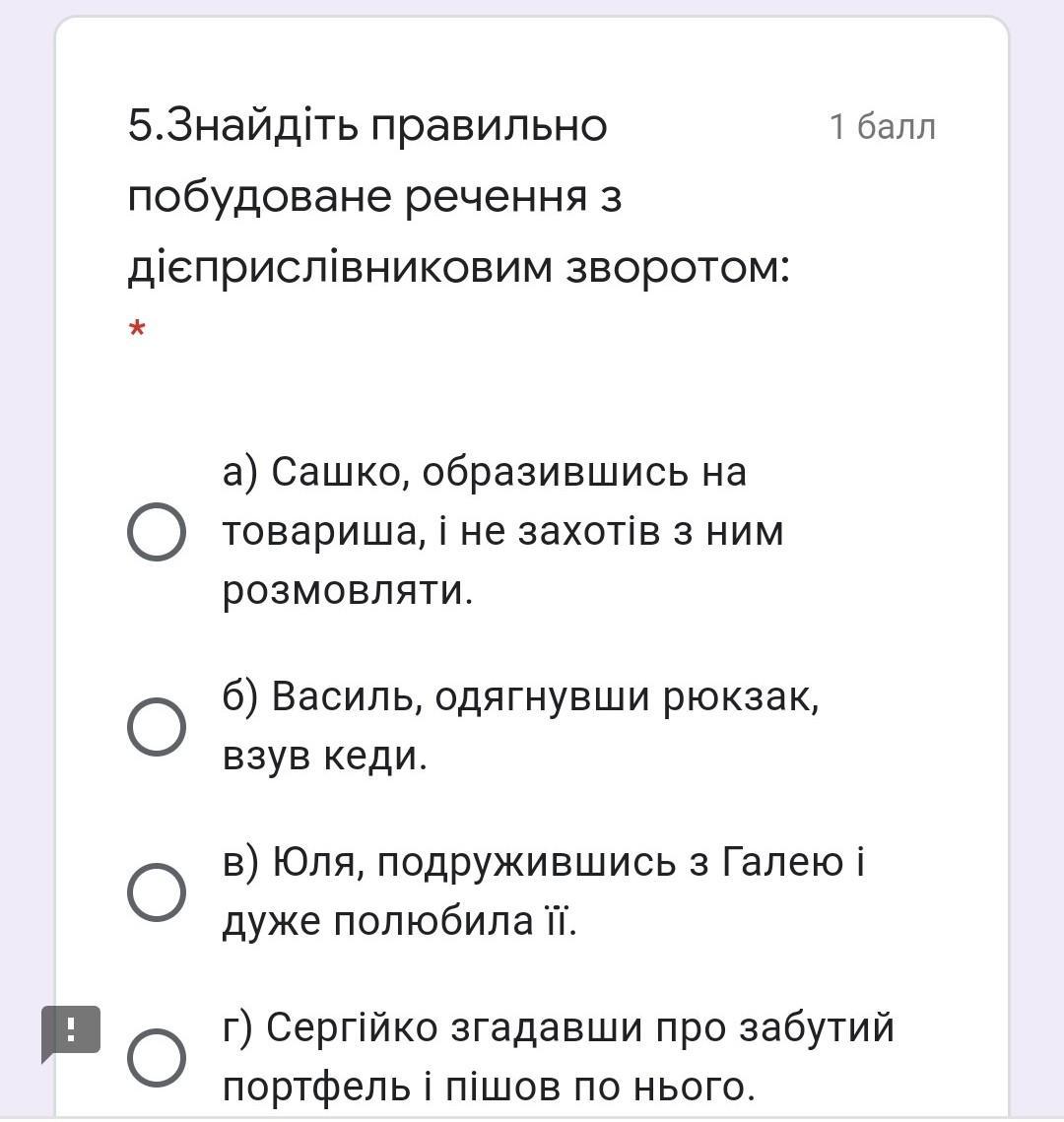Предмет: Українська мова,
автор: evelinapreobrazhensk
помогите пожалуйста
Приложения:

Ответы
Автор ответа:
0
Ответ:
г.......................
Похожие вопросы
Предмет: Русский язык,
автор: Аноним
Предмет: Русский язык,
автор: Аноним
Предмет: Русский язык,
автор: kravtsovvlad
Предмет: Русский язык,
автор: zhekacbod
Предмет: Русский язык,
автор: innusichka23